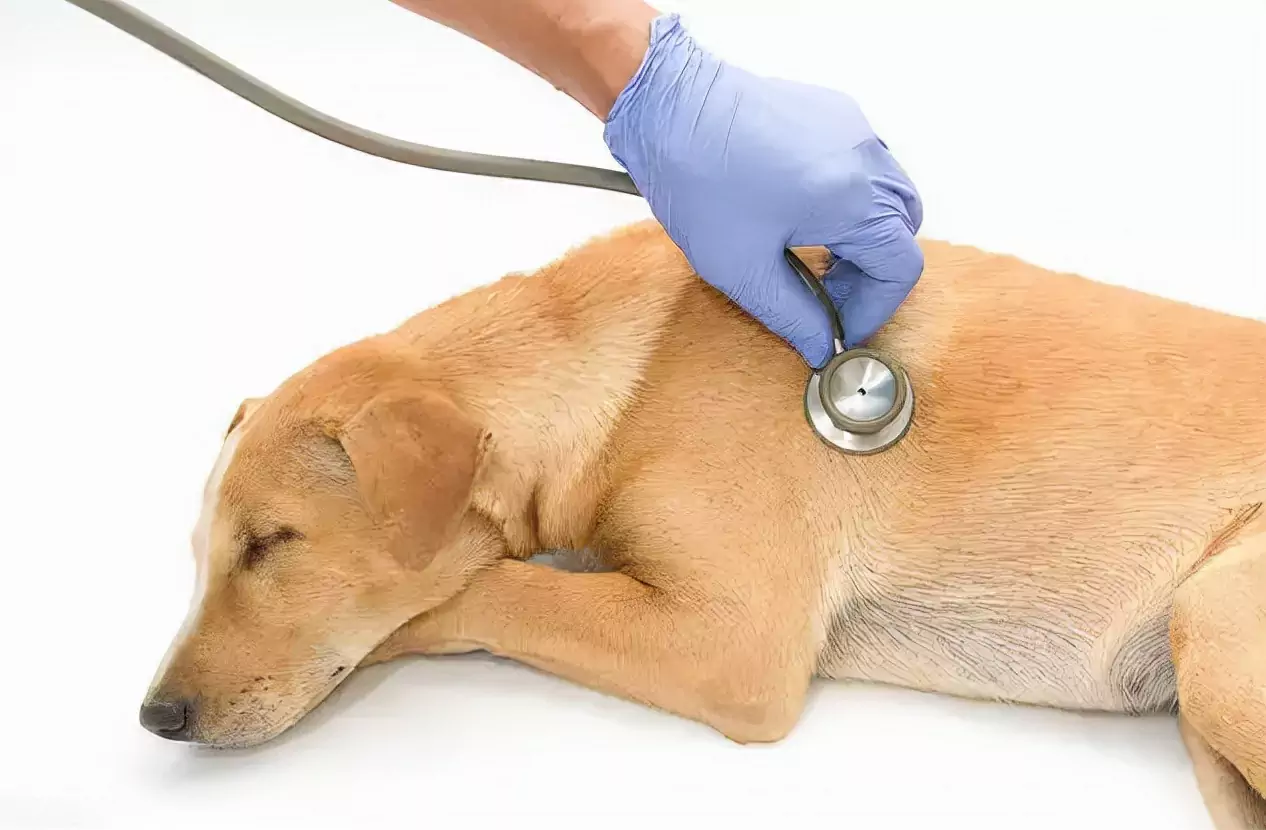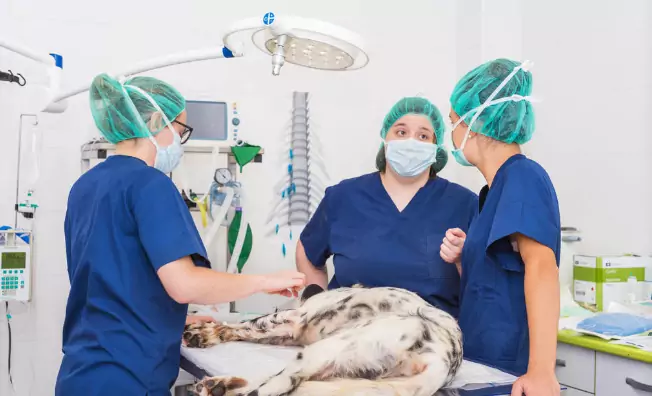Do dogs go through menopause?
2022-08-04
I. Dogs have menopause too, but owners should worry not about a big change in temperament, but reproductive issues
It may be that menopause in humans is so terrifying that everyone feels inexplicably flustered when it is mentioned. But in fact, dogs have menopause too. It's just that this menopause is a little different from what we perceive as menopause. For dogs, menopause is just a normal transition in life, representing the physiological response of dogs moving from one age group to another. Owners should not worry too much about the dog's chance of temperament, but more about whether the dog will develop reproductive disorders as a result.
The dog's menopause is relative to the human, mainly refers to women before and after menopause, due to the reduction in the content of sex hormones resulting in a series of mental and physical performance, the most important sign is menopause, but the dog will not be menopausal, so, is there dog menopause?
Human menopause is not only limited to women, but men also have menopause, and when androgens decline to a certain level, they will also show symptoms similar to some of female menopause. From the perspective of human physiological changes, as a mammal, dogs also have menopause, but not as obvious as humans.
No matter what the animal is, as it ages, its body weakens and its sex hormones diminish, it will inevitably cause some physical and psychological changes, and so will the dog. Dogs before and after pregnancy there are obvious behavioral changes, generally had puppies of the female dog temperament will become docile, the same, into old age, whether from the body, movement, personality, there are great differences between the young and strong, there will be some urinary system and endocrine problems, action has become slow, the response has become sluggish, this may be the symptoms of the dog menopause.
As an owner, you must take care of your dog during this period and be with it more so that it can have a happy old age. If your dog is unwell, seek medical attention in time so that it can grow old healthily.
Which dogs are more at risk of disease during menopause
For female dogs in menopause, as they age, their heat cycle may become irregular due to changes in body functions. But for them, they are still viable and still have the potential to become pregnant, except for spayed or neutered dogs. However, for non-neutered dogs, menopause is the peak time for them to develop related reproductive diseases.
Possible diseases in dogs during menopause
Pseudo-pregnancy
Pseudopregnancy can occur regardless of whether a dog has experienced mating or not. If a dog has a pseudopregnancy, the dog's corpus luteum will not dissipate on its own, as it should. The consequence of the luteinizing hormone not dissipating is a series of pregnancy behaviors, such as nesting behavior, territorial division, maternal behavior (collecting toys, etc.), mammary gland development, and milk production. Most mild pseudopregnancies will resolve within two to three weeks, although the dog will likely become irritable during this time due to discomfort.
Uterine pus
Uterine pus accumulation is a build-up of pus in the uterine cavity. It is caused by elevated levels of the hormone progesterone. Whether the dog is in normal estrus or has a false pregnancy, an abnormal increase in progesterone can cause the lining of the uterus to thicken. The problem, however, is that the dog is not pregnant. Bacteria may take advantage of this time to enter the dog's uterus and cause it to fill with pus. This is a very dangerous situation, and if the owner does not detect and take the dog to the vet in time, the dog may die because of this problem.
Breast Cancer
Similar to humans, mammary cancer has become common cancer in dogs. This is because dogs have more mammary glands than humans. Even more problematic is the fact that any one of these mammary glands can become cancerous. In extreme cases, this may vary from mammary gland to mammary gland.
When should we take our dog to the doctor?
If you want to solve your dog's reproductive system problems by spaying or neutering, then we need to take your dog to the vet as soon as possible to receive the surgery. The sooner the dog is spayed or neutered, the better.
If your dog is lethargic, doesn't want to eat, and is drinking more water than usual, then now is the time to see your vet.

Two, female dogs have menopause, too, and these 4 changes can occur, so you can be more tolerant
The female dog, since she has a physiological period, will naturally have menopause, which generally occurs in older dogs.
It is not difficult to see that the female dog at menopause will have undergone a great transformation in personality, habits, emotions, or physiology.
If the shoveler is not married, it may be difficult to understand the performance of the female dog during menopause. If it's a married man or woman, it's self-explanatory!
The body changes, it is easy to see the female dog in menopause, but 5 changes need to be noticed by the owner, of course, in daily life not only to accommodate but also need to understand.
So, which 5 changes are they? Can't wait for it! Interested continue to look down, may have a big difference with the female menopause Oh!
1, the body function degenerates, and the secretion of hormones is significantly reduced.
Some people will ask: "Editor, how do you know that after the bitch to menopause, hormones will appear substantial changes?"
I tell you, I learned a lot of scientific pet ownership knowledge, from the books seem.
However, it can still be observed in ordinary times. Especially when it comes to the physiological stage of the female dog, the grumpiness and restlessness slowed down significantly, and even less and less contact with dogs of the opposite sex. Of course, the reproductive parts do not see changes, mainly in the body's hormone secretion is declining.
2, temperament becomes increasingly irritable and restless.
Into the menopause of the bitch, you will find in daily life is a great temper, so many do not understand the owner is difficult to understand.
Even many pooper scoopers will think: "Do often go out to play and learn badly with some evil dogs? It was not like this before!"
Do not think so Oh, here and women to menopause almost, indeed become irritable and restless, the slightest disagreement will lose their temper. The dog treats you as a close person, that's why he is like this. Therefore, you should pay attention to be considerate.
3, random defecation in the home, heavy odor.
If you pay attention to the observation, originally formed defecation habits of female dogs, suddenly at home casually defecate, and the odor is quite heavy.
This is a normal physiological phenomenon after menopause.
Heavy odor is mainly the reproductive parts of some diseases but also belongs to the normal phenomenon, this is the accumulation of years of physiological period. If it is not serious, nothing. If it is serious, with bleeding as much as possible or takes it to see a doctor better.
4, diet habits have changed significantly.
After entering menopause, the female dog's appetite has changed greatly, and there is the phenomenon of picky eating.
Even if the patient pooper scooper, it is difficult to tolerate.
However, the dog's life expectancy is only a few years, try to choose to be understanding, not to scold and blame, which will make the mother dog very sad inside.
Conclusion: The bitch that enters menopause is also in her late teens. After encountering these changes and realizations, for the sake of accompanying themselves for so many years, the owner still tries to be understanding. After all, this is a physiological phenomenon, is also difficult to control the dog itself. It is estimated that the female dog will also be self-restraint, believing that it is not intentionally so.
Was this article helpful to you?
Other links in this article
English:
Do dogs go through menopause?
Deutsch:
Kommen Hunde in die Wechseljahre?
español :
¿Los perros tienen la menopausia?
Italiano:
I cani vanno in menopausa?
Nederlands:
Gaan honden door de menopauze?
Polskie:
Czy psy przechodzą menopauzę?
Português:
Os cães passam pela menopausa?
português (Brasil):
Os cães passam pela menopausa?
русский:
Бывает ли у собак менопауза?
日本語:
犬にも更年期があるのですか?
中文简体:
狗会经历更年期吗?
中文繁体:
狗會經歷更年期嗎?
Comments

Why is my dog throwing up?

Why does my dog keep coughing?

How many months is a dog pregnant? Signs and Phenomena of Dog Pregnancy

How do dogs grow fleas? Ways to get rid of fleas on dogs

Can dogs get diabetes?

Can dogs be depressed?

Why does my dog keep sneezing? Causes of Sneezing in Dogs

Can dogs catch a cold? Cold and Flu Symptoms in Dogs

What causes heart disease in dogs

Can dogs get urinary tract infections?








